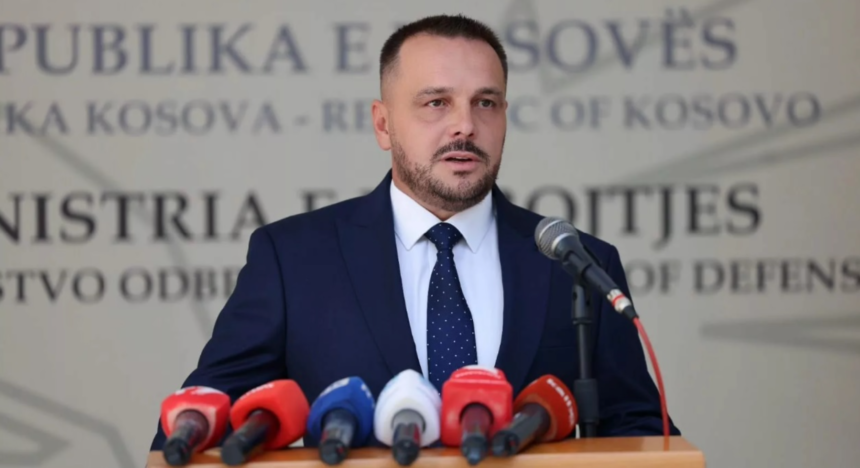As the Kosovo Security Force (KSF) enters the third and final phase of its transition process, it is working towards acquiring air equipment. Minister of Defense, Ejup Maqedonci, stated that they are “generating options for helicopter procurement,” and assured that more clarity on the direction for helicopters will emerge in the coming days.
The transformation process, which is now in its seventh year, is progressing as planned, according to Maqedonci.
“We are generating options for helicopter procurement and I believe that in the coming days we will have a clearer understanding of where we stand with helicopters. The public will be informed about our direction and approach. Our goal is to have at least part of these assets within the KSF before the completion of the third phase of the transition, before 2028,” Maqedonci shared.
During this process, Kosovo has acquired drones and various military vehicles, focusing on investments in modern weaponry, including the purchase of Javelin anti-tank missiles.
Upon completion of the transformation, the KSF is expected to take responsibility for safeguarding the country’s sovereignty and territorial integrity.
Maqedonci also expressed concerns regarding ongoing threats from Serbia, particularly the establishment of 48 Serbian military bases along the Kosovo border. These bases, along with new ones in the south of Serbia, including in Raška, Niš, and Vranje, are seen as a potential security risk.
The Serbian army remains positioned along Kosovo’s border, which Maqedonci described as an ongoing threat. “The presence of 48 Serbian military and gendarmerie bases along the border, along with additional bases in southern Serbia, is a direct extension of their military operations,” he said. He warned that such movements could signify a larger hybrid warfare strategy, blending conventional military threats with other forms of destabilization.
Regarding terrorist threats, Maqedonci recalled the deadly September 2023 attack on Kosovo Police in Banjskë, which led to the death of Officer Afrim Bunjaku, and the November 29 attack on the Ibër-Lepenci canal in Zubin Potok, attributing both attacks to criminal groups supported by the Serbian government. Kosovo authorities have deemed these actions as terrorist acts.
Prime Minister Albin Kurti had earlier warned of potential attacks around the New Year period, acknowledging the continued threat posed by groups involved in these incidents.
Maqedonci emphasized that Kosovo’s security institutions are ready to face any threats to the country’s sovereignty. “We are prepared and capable of responding to any challenges,” he said.
In a significant development, Kosovo has signed an agreement with a Turkish defense industry manufacturer to establish a munitions factory in Kosovo. This move is expected to increase Kosovo’s independence in ammunition production and could position it as an exporter in the future. The factory, to be built to NATO standards, will not only produce munitions but also have the necessary testing and calibration laboratories.
The production will begin with 5.56 and 7.62 ammunition types, commonly used during military exercises. The project is expected to be operational within a year to two years.
Kosovo’s government also approved an integrated defense concept last September, which aims to include citizens in the national defense system. Maqedonci highlighted that the implementation of this concept will be a priority in 2025.






